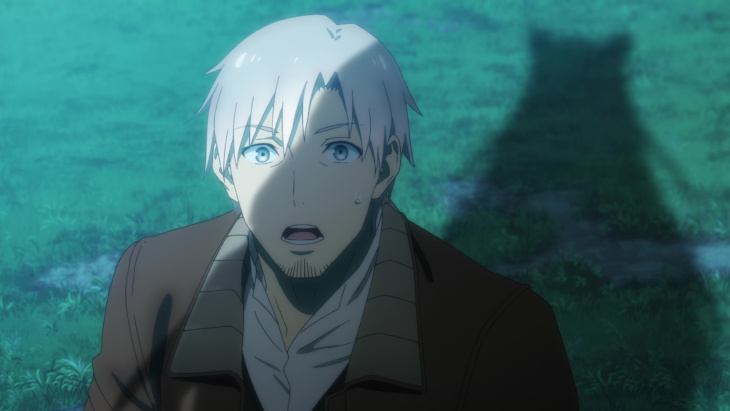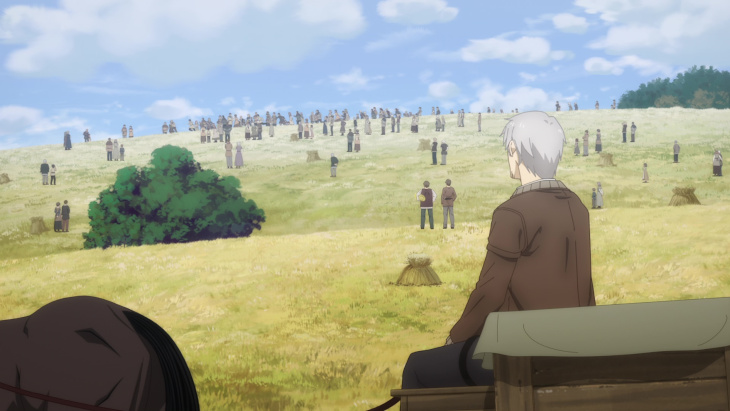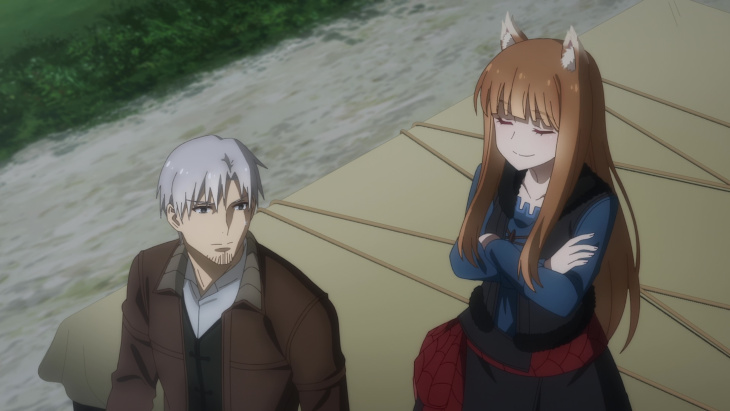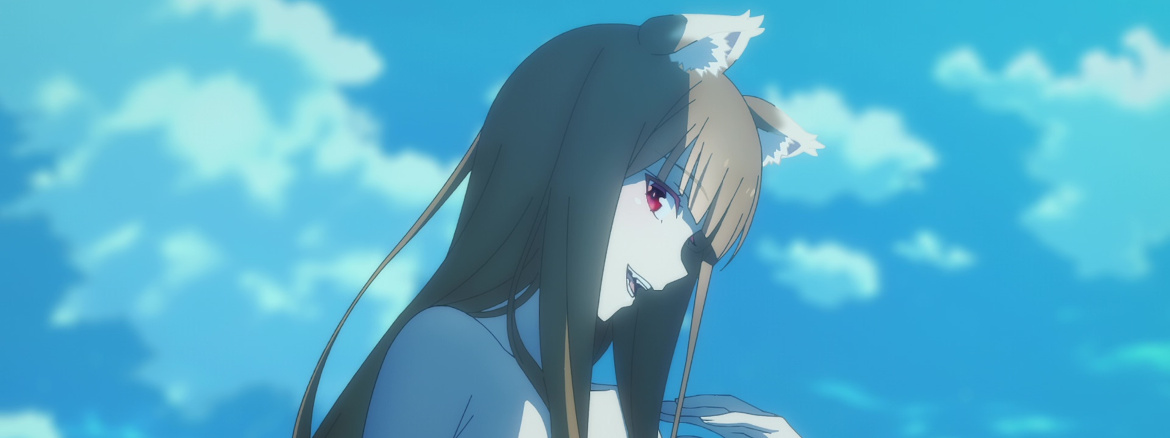
“I am not shameless enough to eat your food without doing anything in return. I am the Wise Wolf Holo, an honorable wolf!”
I think I’m going into the first episode of Spice and Wolf: Merchant Meets the Wise Wolf with a few chips on my shoulder. Most aren’t the fault of the show itself, so I think I need to own up to them. First of all, I watched a handful of episodes from the original series back around when it aired, and I wasn’t much of a fan. I don’t have anything against plots driven by economics, but they can be difficult to make engaging, and I feel that Spice and Wolf (2008) missed the mark there. Furthermore, it’s hard not to watch this new show and avoid being constantly bombarded by the realization that the previous iteration premiered 16 years ago, and the steady encroachment of time will one day render us all to dust, so that’s fun.
Once I looked past those personal hang ups, I was able to acknowledge that this reboot serves as a solid start to the series, though I’m still worried it may struggle to hold my attention. Fans of the previous run or the source material probably don’t need to be told to check this one out, but I’m going to give the material another chance, and I’d recommend others who felt the same way also consider giving it an opportunity.

Spice and Wolf follows Kraft Lawrence, a merchant in a world that seems to be approaching its industrial revolution. Pagan religions have been shed in favor of a monotheistic church, which has outlawed the old pagan practices. Some festivals are still observed, but even then, few hold them as anything more than traditions. One day, when traveling through a town where he got his start as a merchant, Kraft witnesses the yearly festival, paying tribute to the local god, Holo. As part of the festival, the remainder of the wheat harvest is stored in the local warehouse, so that Holo, who lives in the wheat, cannot escape. It isn’t until Kraft leaves the town that evening that he discovers a woman with lupine ears and a tail sleeping among the wheat and furs in his cart.
My recollection of the original anime by Imagin isn’t all that detailed, but even a cursory glance at the plot summary for the first episode shows some notable differences. It seems this version might be sticking closer to the original plot of the light novels, though I can’t speculate on the difference that will make. I’m curious whether they intend to follow a Brotherhood progression and potentially follow the plot past the endpoint of the original second season.

This time the production is being handled by Passione, a studio that I don’t traditionally associate with consistent quality. Then again, the previous studios to handle this franchise were Imagin, Brain’s Base, and Marvy Jack, so this probably still qualifies as an upgrade. The animation isn’t anything special. I might go so far as to say it’s slightly below average, though it varies from scene to scene. I know I keep comparing it to the original, but it’s worth noting that the 2008 run was pretty ugly even for the time. I watched a brief clip for comparison’s sake, and it’s suddenly difficult not to view the remake with rose-tinted glasses. Some adjustments have been made to the character models, and they’re definitely more consistent, though it seems to me that Kraft’s beard likes to wander more than he does, regardless of which adaptation we’re discussing. The OP and ED aren’t memorable audio-wise, though I do appreciate the visuals. The ending features a charming story book aesthetic that compliments the show’s tone well.
Before I wrap up, a few Notes and Nitpicks:
- The show uses an adorable framing device. Even if it never gets referenced again, I’ll admit it was a cute way to initiate the show, and it does a good job of getting the viewer to contemplate the future of the series.
- If the names Imagin and Mervy Jack don’t ring any bells, I can’t blame you. Imagin is only notable for being the production studio for the first season of Spice and Wolf, and Mervy Jack is most recognizable for having done work on some of the Seven Deadly Sins franchise, and having produced the sequel to Gunslinger Girl (along with Spice and Wolf II, obviously)… Hold on, they’re putting out a show this season?! What do you know? Marvy Jack is the studio behind The Banished Former Hero Lives as He Pleases. You can stream it now on Who Cares? Have You Seen That Title? Don’t Bother.
- Passione has come up recently since they produced last season’s Ishura. They also produced the yuri romance series Citrus in 2018… there’s a passion fruit joke in there somewhere. I wonder if I noted that at the time.
- I don’t think there has been any word on whether the original English voice cast will be reprising their roles, though both of the original Japanese leads have returned.
Spice and Wolf was a series where I never understood the appeal, but this reboot offers me some hope that I might finally connect with the story. I can’t offer a wholehearted recommendation at this time, but it’s worth taking in a few episodes to see if this new installment can hold your attention.




Add comment